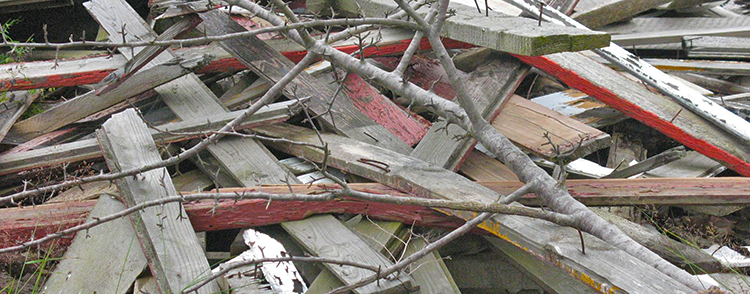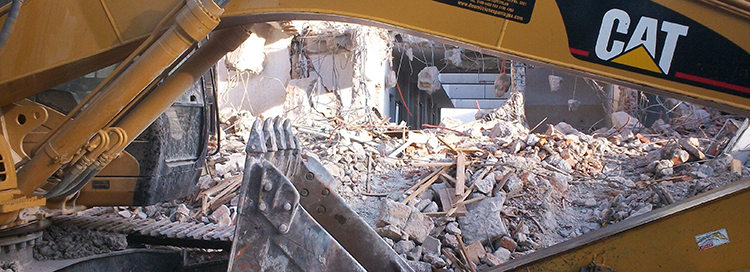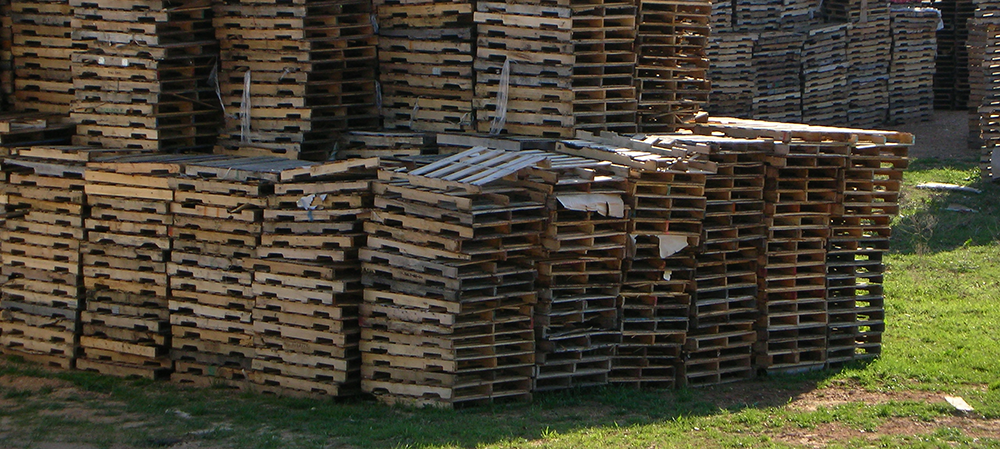We explain what New Jersey recycling exemptions are, why when you could use one instead of a recycling permit or approval.
New Jersey recycling approvals and permits are often incredibly difficult to obtain, take upwards of two years to finally get, and can cost a lot of money. Luckily for some, there are exemptions to the rules which can get you up and running a recycling operation quickly and fairly inexpensively.
We've been fielding a lot of calls lately from folks looking to start a recycling business in New Jersey. It's great to see so much interest in bringing new jobs, new tax revenue, and new recycling businesses into the Garden State! Fortunately for some, there are exemptions to the full blown permitting process which can save you and your operation time, energy, and a substantial amount of money.
New Jersey Recycling Exemptions vs Approvals
If you're already familiar with the New Jersey recycling approval process, scroll down to the exemption paragraph. If not, read on:
What usually follows is either a *CLICK* or stunned silence, followed by "can you get me a recycling permit in Pennsylvania or New York instead?" Of course, but let's keep it in New Jersey!
.png)
New Jersey Recycling Exemptions Explained
Luckily, depending on the situation, you could take advantage of the little-known New Jersey recycling exemptions.
Here's the deal. Recycling businesses in New Jersey are considered to be a type of solid waste facility, and are subject to solid waste regulations. With the checkered past NJ has had regarding landfills, illegal disposal, shady characters, etc., it's no wonder that solid waste regulations are among the most complicated regulations administered by the NJDEP.
But what if you're a smaller player? I'm guessing your operation doesn't have the same environmental impact that a big recycling facility, let alone landfill or incinerator has, right?
Fortunately, the NJDEP cuts you some slack. They have 24 different exemptions, from the need for a recycling center approval for small-scale, low-impact facilities, spanning a wide variety of recycling activities.
These exemptions certainly aren't perfect. They're very restrictive and narrowly defined, there aren't enough of them, and a number of them are not real clear in their requirements leading to a lot of confusion, including with the NJDEP. But, for those who want to get into the business right away, these can be a real benefit.
Here's some more detailed information on all the exemptions available to folks in the Garden State. I encourage you to read through them and see if any apply to you. Trust me, my explanations are much clearer than anything you'll get from the NJDEP, but some of these can still be confusing.
.png)
What's the deal with New Jersey recycling exemptions?
Like I said, there aren't enough, and some are pretty confusing and unclear.
For instance, regarding the "Contractor's Exemption", we've worked together with the NJDEP to clarify what's covered, and what's not because their regulations can be vague and almost misleading. Additionally, since these original exemptions were written many, many years ago, they really don't reflect the full range of today's recycling industry.
The NJDEP understands but can't act quick enough. More exemptions mean more recycling, but the problem is, more new exemptions means new regulations, and that could take years. It's likely not going to happen anytime soon, so if you find that those exemptions linked above don't fit you, you're probably going to have to stick with an NJ recycling permit instead.
.png)
How to obtain a New Jersey recycling exemption.
All-in-all, it's a much simpler process. You have to fill out some forms from the NJDEP, make some public notifications, follow some additional instructions, you may have to pay some fees, and you're pretty much ready to start recycling. The best part is, you can use multiple exemptions on the same site for the same operation. This process can be a bit trickier, but it's very possible, and expands your recycling capabilities.
That's an overly simple description, but it's not too much more complicated than that. We've filed countless exemptions and we hardly ever find someone has a problem with getting an exemption.
The plus side is getting a recycling exemption in New Jersey is a lot quicker, and vastly cheaper then getting a recycling approval instead.
.png)
New Jersey Recycling Exemption Regulations
Just be warned, since you're now on record with the NJDEP as being a recycling business, you're fair game for inspections. And, we've been finding that regulators and inspectors from the state and county are showing up at facilities at an alarming rate recently. It seems like there's some sort of ramped-up enforcement activity.
So, a word of caution: if you have an exemption, do what it says. Don't do more than you're allowed since it could mean a violation, penalty, or monetary fine from the NJDEP. Stick to the conditions of your exemption and don't do more!
Here are two pretty important points:
Recycling exemptions are subject to local & county laws.
Just because you've gotten an exemption from the NJDEP doesn't mean that you're okay with your municipality. Always check with your local and county laws. They may require some form of approval for your operation, regardless of what the NJDEP does or does not require.
If you open a small-scale recycling operation that is exempt from New Jersey recycling approval requirements, it still may require some form of approval from your municipality. Check first, before you begin operations! Just last year we saw two different existing operations shut down because they didn't meet local laws.
Do your homework first!
Even small recyclers in New Jersey are subject to additional permits, plans, and approvals.
You're on the hook with the NJDEP now, and that means increased scrutinity. Like I mentioned above, recycling businesses, even facilities completely indoors, are still subject to things like air permits and stormwater permits. If you are lacking the right permits, you can, and probably will, get in trouble from the NJDEP.
Use a recycling exemption in New Jersey if you can!
If you're lucky enough, exemptions can be a real plus for your recycling business if you qualify. You can use them to get a small scale operation up and running easily and quickly, or in some cases you can use them to get going on a small scale while working on a recycling approval in order to generate some positive cash flow.
Bottom line is if you can use an exemption, get one! There's no downside! To learn more about exemptions in New Jersey, click here to contact us for recycling help or give us a call at 609-693-8301 to discuss your needs today.
.png)
.png)
.png)
.png)


